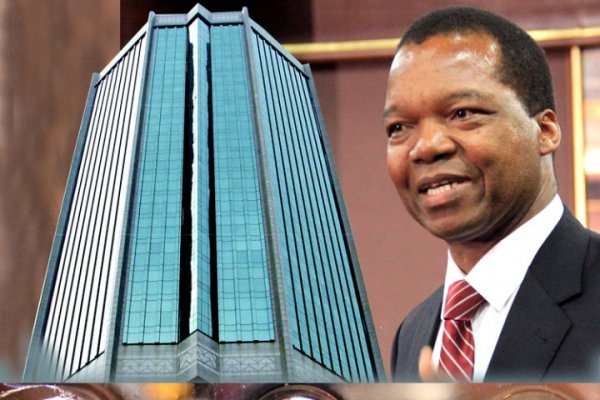
The Reserve Bank of Zimbabwe (RBZ) has reviewed downwards the bank rate to 15% from 25% per annum starting from Friday, May 1, 2020 as the broke government scrambles to resuscitate the economy.
Tatira Zwinoira
In a paper authored by the Zimbabwe National Chamber of Commerce titled ‘Sustainable and Flexible Economic Interventions to Address Covid-19’ released earlier this month, business called for interest rates to be slashed to 20% from 35%.
Slashing the interest rates was to allow businesses to recover from the impact from COVID-19 that has hit Zimbabwe’s trade, mining, manufacturing, tourism, and investment.
“The Bank Policy rate will be reviewed downwards from 25% to 15% per annum with effect from Friday, 1 May 2020, with the expectation that banks will do the same to provide affordable financial facilities to their customers during these challenging times,” said RBZ governor John Mangudya, in a statement on Wednesday.
“The Bank’s Monetary Policy Committee (MPC) met on 24 April 2020 and deliberated on a number of issues including the impact of COVID-19 on the economy and the necessary policy interventions to ensure that the economy remains on a growth trajectory.”
Mangudya said the MPC noted the compelling need to reinforce the Bank’s first-round of economic policy responses to the COVID-19 pandemic starting with slashing the interest rates.
Businesses have complained that higher interest rates would make it difficult for them to borrow money for productive purposes, hence, the move by the RBZ.
- Chamisa under fire over US$120K donation
- Mavhunga puts DeMbare into Chibuku quarterfinals
- Pension funds bet on Cabora Bassa oilfields
- Councils defy govt fire tender directive
Keep Reading
Traditionally, lower interest rates makes it cheaper to borrow thus encouraging spending and investment eventually leading to higher aggregate demand and economic growth.
“The interest rate acts as a price for holding or loaning money. Banks pay an interest rate on savings in order to attract depositors. Banks also receive an interest rate for money that is loaned from their deposits. Each bank loan increases the money supply in a fractional reserve banking system,” American financial and economic literacy website, Investopedia, said.
The consequence of lower interest rates, according to the ‘quantity theory of money’ is growing money supply increases inflation.
But, considering how higher interest rates have not been behind Zimbabwe’s hyperinflation as is the norm in economics the lower interest rate may have no effect on the economy.
This is because it is the technically valueless Zimbabwe dollar (ZWL) that is driving annual inflation currently at 676,39% as of March.
However, the RBZ may be seeing a lower Bank Policy Rate stabilising the local currency as increased borrowing would grow production, thus export proceeds, which would provide a foreign currency backing to the ZWL.
Mangudya said the interest rate applicable in the Medium-Term Bank Accommodation (MBA) Facility will be reduced from the current 15% to 10% per annum effective May 1.
“The MBA Facility has been increased by $500 million to bring it to $3 billion. An additional $2 billion will be raised from the market through money supply neutral financial instruments to augment the MBA Facility to $5 billion. Banks that access the MBA Facility are encouraged to on-lend at interest rates not exceeding 20%,” he said.













